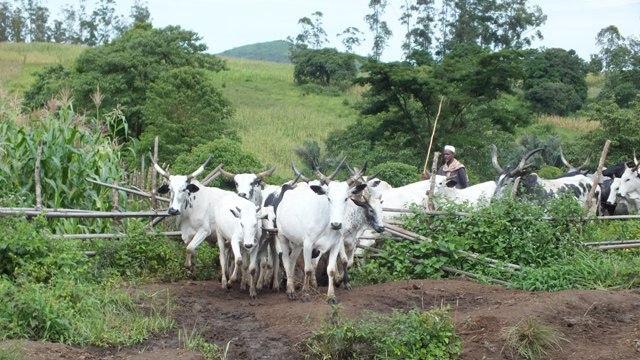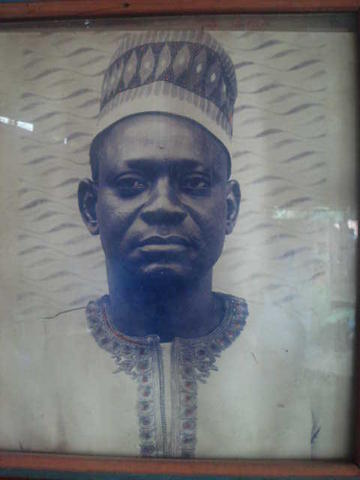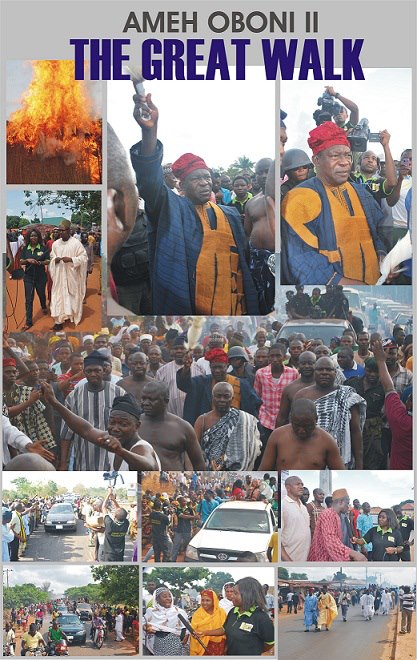
By Michael Achile Umameh
In the dawn of national politicking, Hausa-Fulani oligarchy and ideological constructs have become prominent mobilizing forces used by politicians advocating for greater regional representation in the central government. More recently in the face of the national outcry and mourning precipitated by the terrorist herdsmen’s killings in the middle belt states, Gov. Yahaya Bello kowtowing to the northern sentiments and in a self-serving manner has offered Kogi state as fertile place for cattle colonies. Without any form of community representations and robust consultation this imprudent reaction is courting tragedy.
The middle belt, where the Igala kingdom sits (politically: north central) with other clusters of multi-ethnic nationalities lie between the core northern states, predominantly and ideologically Hausa-Fulani and the southern region, largely Igbo-Niger Delta language groups.
These interacting geographic belt and regions have over the century become tectonic plates of culture, politics and religion perpetually grating at each other with royal myths, inherited mutual colonial suspicions and negative stereotypes. The primordial instinct for domination and control by these ethnic nationalities is still seething beneath the professed modernity of the Nigerian state.
This brief historical and geographical positioning is necessary to enable deeper understanding and proffer a robust solution to the hydra-headed incessant tension and vicious cycle of mutual killings, especially in the middle belt. And beneath all these is the inherited colonial legacy of violence as a tool of domination, resistance, and control (Falola, 2009). The recurring herdsmen killings is the modern incarnation of this age-old conflict. Igala land has not been spared of the bloodletting and murderous occupation of the machete welding and Kalashnikov totting largely Hausa-Fulani herdsmen.
The catalogues of killings are stacking up still. They have killed, raped and pillaged unarmed, defenceless farmers in Adamawa and Zamfara, on the Plateau and in Southern Kaduna, in Taraba and in Nasarawa and the Benue valley. These terrorist herdsmen have gone as far south and West as Enugu, Calabar, Akwa-Ibom, Edo, Ondo, Oyo and Ekiti States respectively.
Armed with sophisticated weapons, they have killed women and children and burnt down entire villages in a kind of blitzkrieg that would have impressed Stalin and Hitler— an undeclared, one-sided war against an unarmed and defenceless people. They have occurred mainly in the Middle-Belt and cultural borderline states of the Muslim north, where Muslim Hausa-Fulani groups have been pitted against non-Muslim ethnic groups in a “dangerous convergence of religious and ethnic fears and animosities (International IDEA 2000: 296).
The recent Benue tragedy is the latest in a long record of genocidal mayhem being perpetrated by these nomadic terrorists.
Apart from the thousands of unacknowledged casualties, there is the humanitarian disaster of internally displaced people, and the erosion of social capital of trust amongst various communities. Igala land as well has not been spared blood and tears. Between 2012 to 2017 over 80 Igala sons and daughters have been gruesomely murdered. Several sad occurrences of killings by herdsmen have been recorded in Ebeje where 8 people were killed, barns and farms set ablaze; in Agbada/Agojeju, 19 people were slaughtered, in Edede, 2 persons were killed, 6 killed in Oganenigu, 3 in Ojapata, 5 in Ojuwo-Anawo. All these happened in Dekina Local Government Area alone. In Ofu local government, 20 persons lost their lives in Ojuwo-Omachi and Akpagidigbo. In Abejukolo and Bagana in Omala Local Government Area, terror has built a home in the guise of the Herdsmen. Some villages have been sacked and in some communities in Ogugu and Ibaji crops have been destroyed and people live constantly in anxiety.
This is more than enough evidence to reject any form of Hausa-Fulani herdsmen occupation.
This is no ethnicization of the issue at hand. This is no call for restitution. This is my Igala story. This historical retelling is towards an Igala nationalistic interests. This narrative initiates a conversation towards accommodation that is mutually beneficial, fair and robust co-existence of the diversity of the ethnic groups that constitute our national space. This narrative provides a template to renew some forms of intellectual conversation towards a future of Igala land that is free from any iota of domination or external control. A society that has no room for difference has no room for humanity.
The begging questions are: What is at the root of the persistence of the historical suspicion of the Hausa-Fulani in Igala land? How do we move forward from the historical wrongs done to the Igala nation towards a more fruitful and mutually benefiting co-existence? How do we cure the myth supremacy and domination of one ethnic group over the others?
Beyond the imprudent cattle colony remarks by Gov. Yahaya Bello, is there a future when we (Igala) upon a wider consultation, could welcome an Igala-Hausa-Fulani partnership of mechanized cattle ranching? I am glad that the federal government has now understood that creating so-called “colonies” without disarming the terrorist herdsmen can only lead to peace of the graveyard.
Nigeria as a multi-ethnic entity must move towards a restructuring that empowers and protect the minorities from perpetual marginalisation, regional bullying and domination.
Arise, O compatriots!
Igala First!
…Concluded
Reference:
Abdulkadir, M. S. (1987, January). Colonial Conquest and African Resistance: The case of Idah Ankpa in Igala land (1864-1904). In History Department Seminar, BUK (pp. 16-21).
Abdulkadir, M. S. (2011). Islam in the non-Muslim areas of northern Nigeria, c. 1600-1960. Ilorin Journal of Religious Studies, 1(1), 1-20.
Abdulwahab, A. (2015). The contribution of Hausa or Fulani scholars to the development of Islam in Ilorin metropolis (doctoral dissertation, department of Islamic studies, faculty of arts and Islamic studies, Usman Dan Fodio university, Sokoto).
Curtin, Philip D. Image of Africa: British ideas and action, 1780-1850. Springer, 1965.
Dike, K. O. (1956). Trade and politics in the Niger Delta, 1830-1885: an introduction to the economic and political history of Nigeria. Oxford: Clarendon Press.
Falola, T. (2009). Colonialism and violence in Nigeria. Indiana University Press.
Forde, D., Brown, P., & Armstrong, R. (1955). Peoples of the Niger-Benue Confluence (the Nupe. the Ebira. the Igala. the Idoma-speaking Peoples): Western Africa. Routledge.
Idakwoji, J. (2014) An Ígálá-English Lexicon: A Bilingual Dictionary with Notes on Igala Language, History, Culture and Priest-Kings. Partridge Publishing Singapore
Kwanashe, G.A. 2002. The Making of the North in Nigeria-1900-1965, Kaduna: Arewa House.
Mohammed, A. R. (2014). History of the spread of Islam in the Niger-Benue confluence area: Igala land, Ebira land and Lokoja c. 1900-1960.
Ochonu, M. E. (2014). Colonialism by Proxy: Hausa imperial agents and Middle Belt consciousness in Nigeria. Indiana University Press.
Ohiare, J.A (1988) The Kingdom of Igu and Opanda C. 1700-1939: A study of Inter-Group Relation, Ph.D. History, Ahmadu Bello University. Zaria
Okeke, O. (1992). Hausa-Fulani hegemony: the dominance of the Muslim north in contemporary Nigerian politics. Acena Publishers.
Okene, A. A. (1995). The Transformation of Ebira land, 1880-1960. PhD diss., Bayero University, Kano, Nigeria, 34-36.
Okwoli, P. E. (1973). A short History of Igala. Ilorin: Matanmi and Sons.
Osaghae, E. E., & Suberu, R. T. (2005). A history of identities, violence and stability in Nigeria (p. 95). Oxford: Centre for Research on Inequality, Human Security and Ethnicity, University of Oxford.
Ukwede, J.N. (2003). History of the Igala Kingdom C. 1534 – 1854, A Study of Political and Cultural Integration in the Niger-Benue Confluence Area of Nigeria. Arewa House:
Weise, C. (2013). Governance and Ritual Sovereignty at the Niger-Benue Confluence: A Political and Cultural History of Nigeria’s Igala, Northern Yoruba and Nupoid-Speaking Peoples to 1900 CE (Doctoral dissertation, UCLA).
Yerima, A. (2005). Ameh Oboni the great. Ibadan: Kraft Books Limited.


